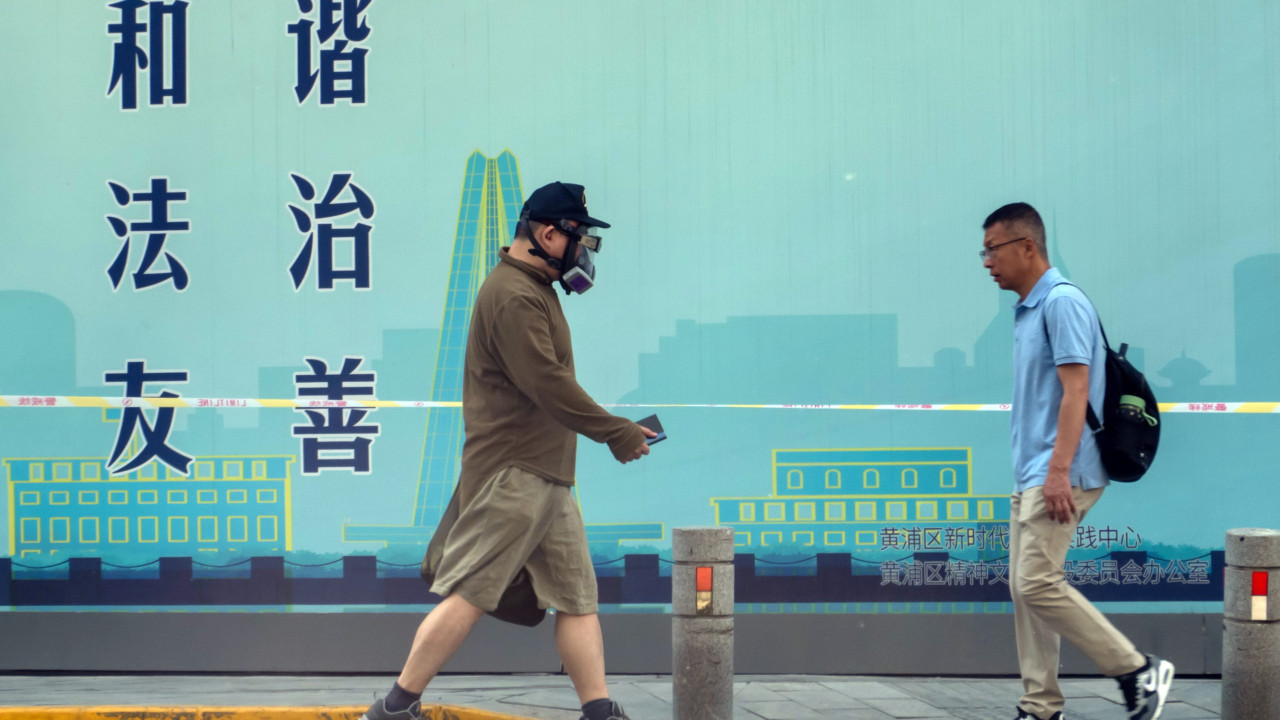
“OThe excesses, the absolute control that the government assumed over my life made me understand: politics is important”, explained Chen, a native of Sichuan province and owner of several tailor-made dress shops, to the Lusa agency.
“Confidence has been lost”, added the businesswoman, who is about to emigrate to Australia, after being unable to leave the building where she lives for several months last year and recording heavy losses due to the closure of her stores. .
A year later, all references to the ‘zero covid’ strategy, initially used as a source of legitimacy by the Chinese Communist Party (CCP), disappeared from the country’s press or social media, after a dismantling forced by popular discontent and which resulted in a crisis of public health, whose death toll was hidden.
In the end, the CCP argued that its handling of the pandemic created a “miracle in human history” and that its efforts led China to a “decisive victory” over the virus.
Authorities sought to frame the abandonment of the policy as a carefully crafted measure to protect the health of their citizens, but the term ‘zero covid’ or images referring to epidemic prevention measures disappeared from the state press or social media.
“The Communist Party is banking on the fact that if it just emphasizes the positive evidence, somehow, after several years, people will have forgotten all this,” said Willy Lam, an analyst of Chinese politics.
Some physical objects refer to that Era: an abandoned container on a corner, where thousands of people once came daily to take the mandatory PCR test; or bottles of disinfectant gel at the entrance of establishments.
The effects of the policy also persist in economic data, including the record rate of youth unemployment or low level of consumption, pointed out by analysts as a reflection of the loss of confidence among investors and families.
“Much of the data [económicos] of 2023 are related to the ‘zero covid’ strategy”, noted Dali Yang, an expert on Chinese politics at the University of Chicago. “The ‘zero cases’ policy is behind us, but its effect on the economy persists”.
One of the characteristics of Beijing’s strategy was that everything seemed to become irrelevant in favor of combating the virus, including legal standards, movement of people, economic goals or mental health.
This resulted in highly restrictive lockdowns of entire cities marked by food shortages, violence or isolation of positive cases in degrading conditions.
“It was traumatic,” a South Korean living in Beijing told Lusa. “When you know that at any moment you could be locked in your house for an indefinite period of time or dragged to an unknown location you lose any sense of security,” she described.
The succession of tragedies and cases of abuse of authority ended up resulting in protests that spread across several Chinese cities at the end of 2022, following a deadly fire in a building in the city of Urumqi, in northwest China.
Images spread on social media showed that the fire truck was initially unable to enter the neighborhood, as the access gate was locked, and that residents were also unable to escape the building, whose door was blocked, as a result of epidemic prevention measures. .
“I feel like Shanghai was never the same after the blockade,” a local resident told Lusa, referring to the two-month isolation of China’s most cosmopolitan and prosperous city.
Inko, a French teacher at a university in Beijing who spent nine months detained on campus, took some time to realize the consequences of being “conditioned”.
“When I’m trying to leave a space and I come across a locked door, I start to feel anxious,” he said.
Read Also: Covid-19 vaccine is safe and effective in children and adolescents, says study
All News. By the Minute.
Eighth consecutive year Consumer Choice for Online Press.
Download our free App.
Source: https://www.noticiasaominuto.com/mundo/2480124/sombra-da-politica-zero-covid-paira-sobre-a-china-1-ano-apos-reabertura


